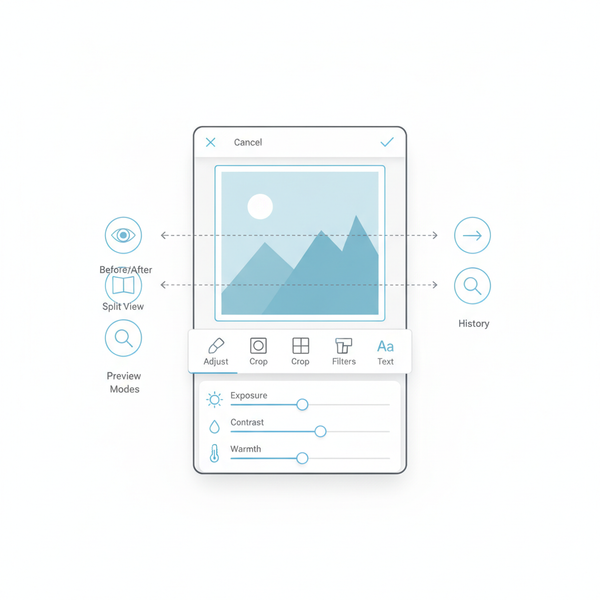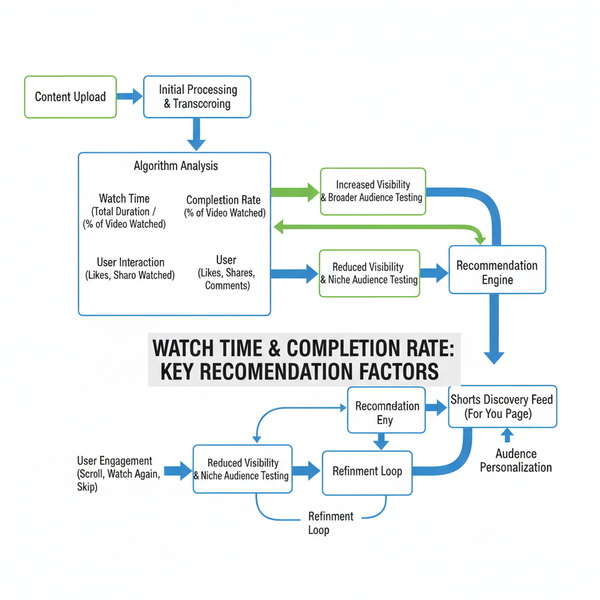Guide to Running a Successful Social Media Workshop
Learn how to plan, design, and deliver a social media workshop that engages participants, covers current trends, and drives measurable results.
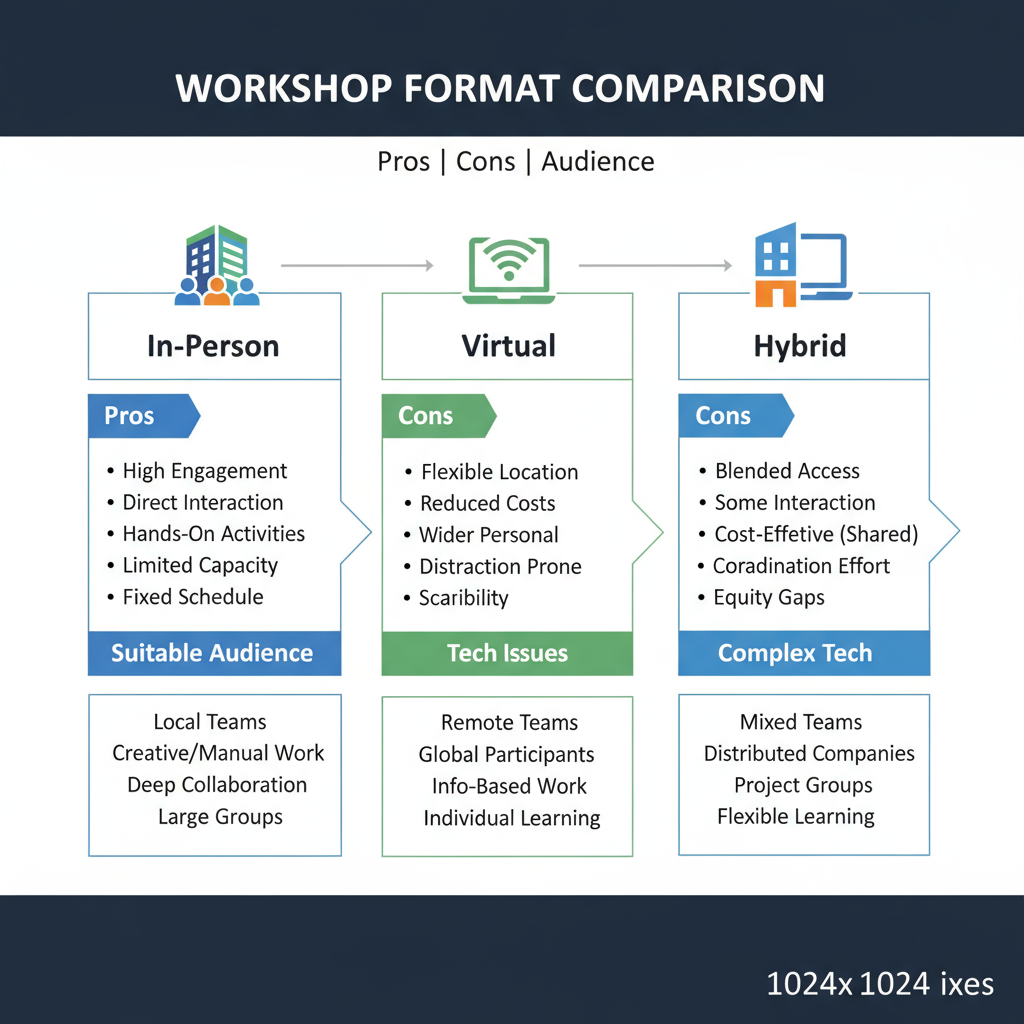
Guide to Running a Successful Social Media Workshop
Social media plays a pivotal role in brand growth, customer engagement, and market research. For marketers, educators, and entrepreneurs, hosting a social media workshop is an excellent way to equip participants with the skills and strategies needed to create impactful digital campaigns. This guide will walk you step-by-step through planning, designing, and delivering a workshop that educates, inspires, and produces measurable results — ensuring your event is both valuable and memorable.

---
Define Workshop Objectives and Identify Your Target Audience
Before you dive into logistics, define exactly what you want participants to achieve by the end of the workshop. Clear goals will shape your curriculum, activities, and examples.
Key questions to ask yourself:
- Is the workshop aimed at teaching basic platform navigation or advanced campaign strategies?
- Who is your ideal attendee — small business owners, marketing students, or corporate marketing teams?
- Are they interested in organic content growth, paid advertising, or a mix of both?
Knowing your audience ensures your training remains relevant, practical, and impactful.
---
Choose the Most Effective Workshop Format
The format you choose will influence interaction levels and learning outcomes.
Common workshop formats:
- In-Person: Best for hands-on guidance, networking, and real-time collaboration.
- Virtual: Cost-effective, easy to attend from anywhere, and can scale to larger audiences.
- Hybrid: Blends in-person connection with online accessibility and flexibility.
When deciding, factor in your audience’s location, your budget, and available resources.
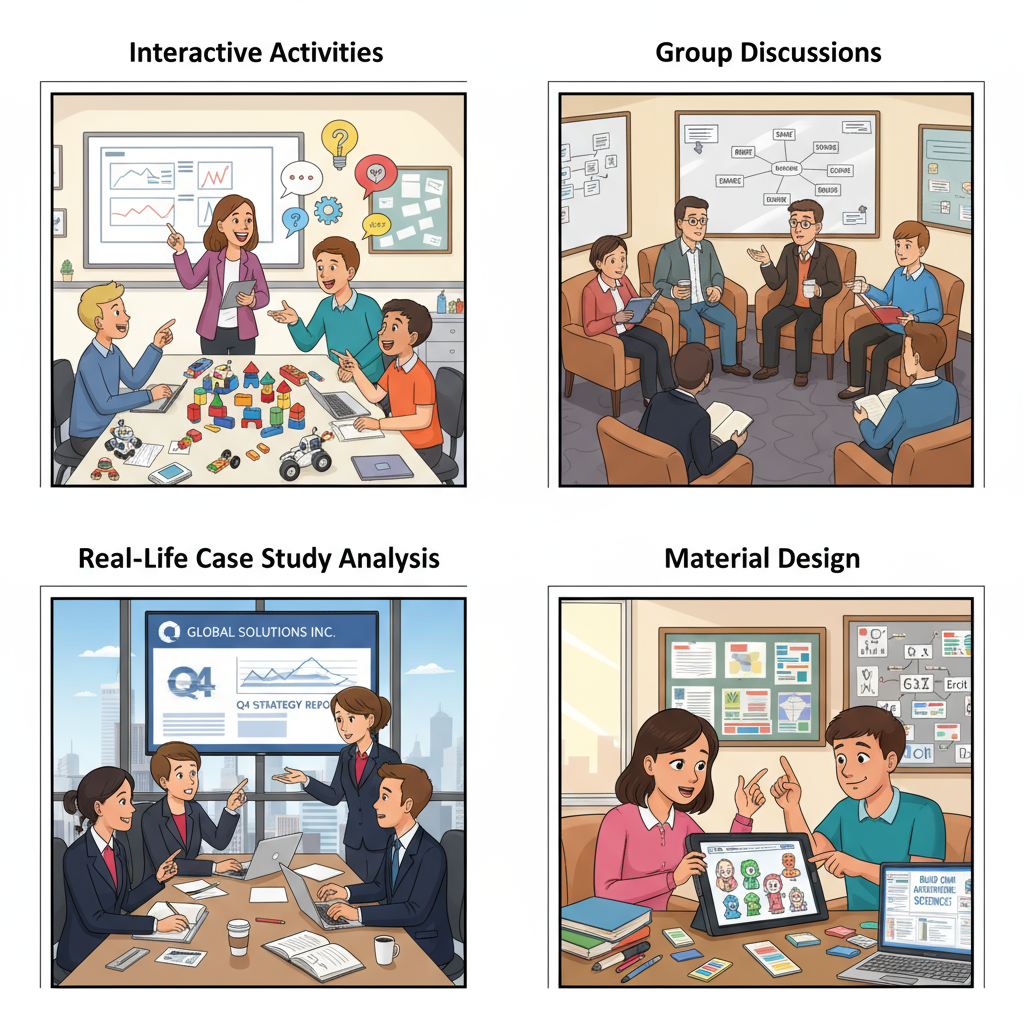
---
Research and Integrate Current Social Media Trends
An outdated workshop can lose credibility quickly. Ensure your material reflects the latest industry shifts.
Areas to research before your event:
- Emerging social platforms (e.g., Threads, BeReal)
- High-performing content formats (e.g., Instagram Reels, TikTok short-form video)
- New algorithm updates and ad platform features
Rely on authoritative industry blogs, official platform newsrooms, and thought leaders for reliable updates.
---
Prepare a Comprehensive Workshop Agenda
A structured agenda keeps your workshop on time and allows participants to anticipate what comes next.
Sample 3-hour agenda:
| Time | Activity |
|---|---|
| 09:00 – 09:15 | Welcome & Introductions |
| 09:15 – 09:45 | Social Media Trends Overview |
| 09:45 – 10:30 | Platform Deep Dive (Facebook, Instagram, TikTok) |
| 10:30 – 10:40 | Coffee Break |
| 10:40 – 11:15 | Hands-On Group Work: Content Creation |
| 11:15 – 11:45 | Analytics & Performance Tracking |
| 11:45 – 12:00 | Q&A and Wrap-Up |
Allocate time realistically and leave space for breaks to maintain engagement.
---
Use Interactive and Engaging Teaching Methods
Active participation boosts learning retention.
Recommended techniques:
- Hands-on exercises: Have attendees create and schedule sample posts.
- Collaborative discussions: Let participants share real-life experiences.
- Role-play: Simulate customer interactions via comments or direct messages.
---
Develop Practical, Relatable Case Studies
Case studies help bridge theory and real-world application.
Best practices for case studies:
- Match examples to participants’ industries.
- Present both successes and failures for balanced learning.
- Include data points, visuals, and campaign timelines.
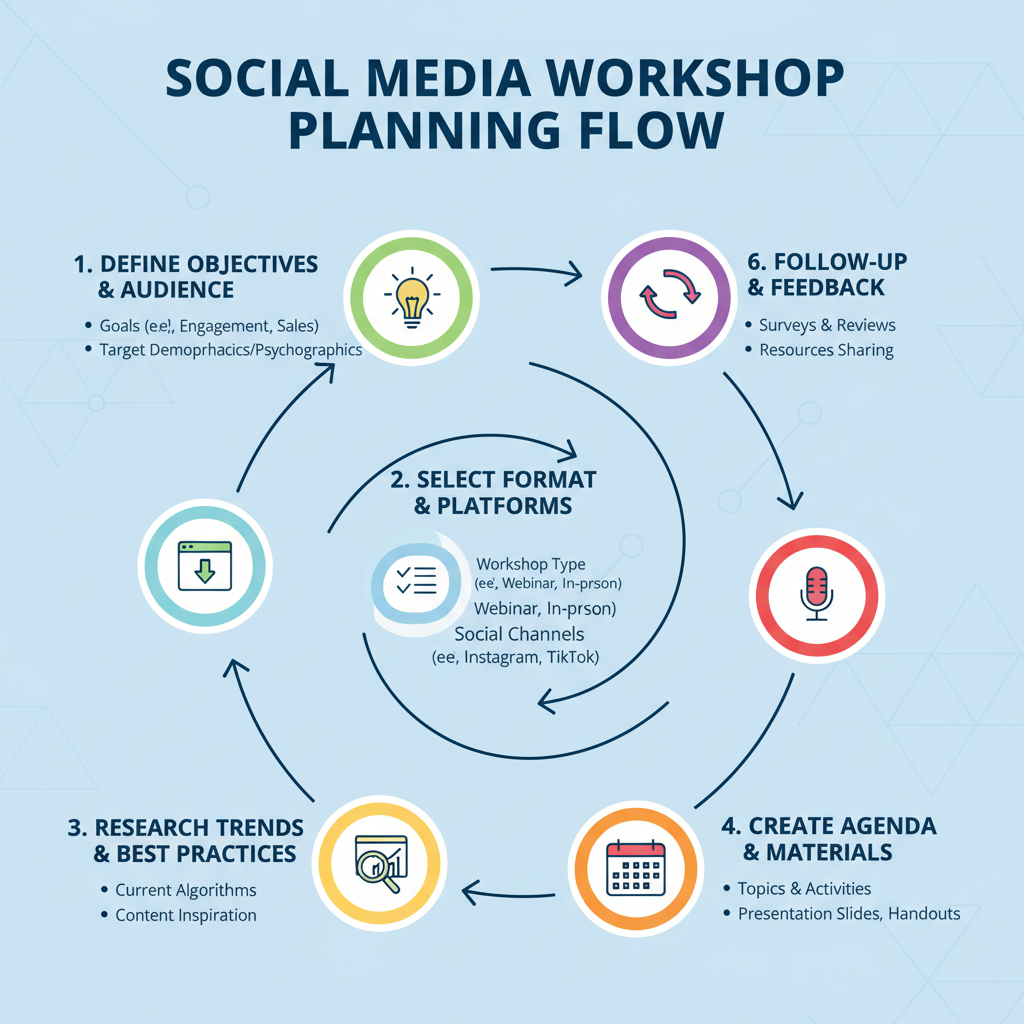
---
Design Visually Appealing Workshop Materials
Clear, professional materials improve participant experience.
Design tips:
- Prioritize visuals over heavy text.
- Use consistent fonts, branded colors, and high-resolution images.
- Simplify layouts for easy readability.
---
Incorporate Digital Tools for Interaction
Leverage technology to increase engagement:
- Polls: Tools like Mentimeter and Slido gather audience opinions quickly.
- Quizzes: Reinforce learning through instant feedback.
- Breakout rooms: Ideal for small group brainstorming in video conferencing platforms.
---
Provide Step-by-Step Live Demonstrations
Demonstrations make concepts tangible.
Examples to show:
- Creating Instagram Story highlights
- Setting up targeting in Facebook Ads Manager
- Using trending sounds on TikTok
Encourage attendees to try these features live during the session.
---
Dedicate Time to Content Strategy Planning
Effective social media presence begins with a strong content strategy.
Topics to cover:
- Creating an editorial content calendar
- Optimal posting schedules for each platform
- Balancing promotional content with value-driven posts
- Hashtag research and impactful captions
---
Teach Analytics and Performance Tracking
Show participants how to measure and improve their results.
Key metrics:
- Reach, impressions, engagement rates
- Ad click-through rates (CTR)
- Follower growth over time
Analytics tools:
- Native dashboards (Instagram Insights, Twitter Analytics)
- Third-party apps like Hootsuite, Buffer, or Sprout Social
---
Set Aside Q&A Time for Personalized Insights
Encourage participants to bring real challenges for live problem-solving. This builds rapport and offers high-value, tailored advice.
---
Share Post-Workshop Resources
Help attendees continue learning after the event:
- PDF recap guides with tips and strategies
- Printable daily/weekly/monthly checklists
- Curated lists of tools, templates, and articles
---
Gather Feedback for Future Improvement
Collecting participant feedback ensures you evolve and improve.
Methods:
- Online surveys with scaled and open-ended questions
- Anonymous in-room paper forms
- Email follow-ups requesting testimonials
---
Promote Your Workshop to the Right Audience
An impactful workshop still needs attendees. Use a multi-channel promotion strategy:
Online:
- Social media event pages and teaser posts
- Email marketing to your audience list
- Partnerships with relevant influencers or organizations
Offline:
- Flyers in co-working spaces or libraries
- Announcements at industry meetups
- Encouraging past attendees to spread the word
---
Summary and Next Steps
Running a social media workshop successfully depends on well-defined goals, an engaging structure, and current, actionable content. By tailoring your agenda to your audience, incorporating interactive teaching methods, and using up-to-date trends, you’ll position yourself as a go-to expert in the field.
Start planning your next workshop today and empower your participants to thrive in the fast-moving world of social media. Your future attendees — and their audiences — will thank you.



